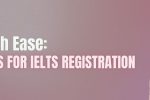What is an OET exam? A ultimate Guide to Beginners
What is an OET exam?
Are you a healthcare professional looking to work or study in an English-speaking country? Then, you’ve come across the term OET exam. But what exactly is an OET exam, and why is it essential for your career? This blog post will delve into OET exams, uncovering all the necessary details. So fasten your seatbelts and prepare to embark on a journey towards improving your language skills and unlocking endless opportunities!
What is an OET?
OET stands for Occupational English Test, an internationally recognized English language proficiency exam designed for healthcare professionals. To evaluates the linguistic proficiency of healthcare professionals who are aspiring to pursue employment or academic opportunities in an English-speaking setting.
The OET was first developed in the late 1980s by a team of experts from Australia and the United Kingdom to help non-native English-speaking healthcare professionals demonstrate their language proficiency in a way relevant to their field of practice. Since then, it has become widely accepted by healthcare organizations, regulatory bodies, and universities as evidence of a candidate’s ability to communicate effectively.
Benefits of OET Exams
The OET Exam offers many benefits to healthcare professionals looking to work or study in an English-speaking country. Firstly, the exam is explicitly tailored for medical and healthcare professionals, ensuring that the assessment accurately reflects real-life scenarios they may encounter in their field.
The test takers are assessed on their language proficiency and ability to communicate effectively and professionally with patients and colleagues.
Additionally, the exam covers all four language skills – listening, reading, writing, and speaking – which provides examinees with a comprehensive evaluation of their overall English language abilities.
The OET Exam is recognized by regulatory bodies and organizations worldwide, making it widely accepted as proof of English proficiency for registration or employment purposes.
Furthermore, individuals can enhance their career prospects by successfully passing this examination. Employers often prefer candidates who have demonstrated competence in medical knowledge and practical communication skills through this reputable assessment.
Ultimately, taking the OET Exam equips healthcare professionals with the necessary tools to excel in an English-speaking environment while ensuring optimum patient care through clear and concise communication.
Who takes the OET?
The OET is primarily aimed at doctors, nurses, dentists, pharmacists, physiotherapists, occupational therapists, radiographers, and other allied health professionals who wish to register or apply for employment opportunities in countries where English is the primary language used in healthcare settings. These include Australia, New Zealand, Singapore, Dubai (UAE), and Namibia.
However, even if you are not planning on working or studying overseas but want to improve your communication skills within your country’s healthcare system or enhance your career prospects internationally – taking the OET can be highly beneficial. It can increase confidence when communicating with patients and colleagues whose first language may not be English.
Which is more complex, OET or IELTS?
The Occupational English Test (OET) and the International English Language Testing System (IELTS) both the Occupational English Test (OET) and the International English Language Testing System (IELTS) stand out as highly acknowledged English proficiency assessments for healthcare professionals aiming to pursue opportunities in English-speaking countries, either for work or study.
While both exams assess language skills, there is often a debate about which is more complicated. This section will compare and contrast the OET and IELTS exams to determine which one may be more challenging.
One of the main differences between OET and IELTS is their format. The OET exam consists of four sub-tests – Listening, Reading, Writing, and Speaking – specifically tailored to healthcare professionals. The IELTS exam also has four sections – Listening, Reading, Writing, and Speaking – but these sections are designed for general use, not specific professions. This means that while some questions on the IELTS may be related to healthcare topics, others could be about any subject.
Regarding difficulty level, the OET can be more challenging than the IELTS for healthcare professionals. It tests your knowledge in a specific field rather than general language proficiency. For example, in the writing section of OET, candidates have to write a letter related to their profession, whereas in IELTS, they have to write an essay on a random topic.
Focus on Healthcare Terminology:
As mentioned earlier, one of the critical differences between OET and IELTS is the focus on healthcare terminology. In OET, candidates are expected to use accurate and appropriate language related to their profession, which can be challenging for those unfanned to become more with medical terms. On the other hand, IELTS requires a basic understanding of general English vocabulary and grammar, making it comparatively easier.
Speaking Test:
Regarding speaking tests, OET may be more problematic as it simulates daily real-life scenarios that healthcare professionals encounter. This means that candidates have to demonstrate their english speaking skills and ability to communicate effectively in a professional setting. In contrast, the IELTS speaking test is more open-ended and focuses on everyday conversation topics.
Scoring System:
The scoring system for OET and IELTS also differs. OET uses a numerical scale from 0-500, while IELTS uses a band score from 0-9. This can make it difficult to compare scores between the two exams. Additionally, OET requires a minimum score of B in each sub-test, whereas IELTS has an overall minimum score requirement.
Overall, both OET and IELTS have unique challenges and difficulty levels. The critical difference lies in the focus on healthcare terminology and communication skills in real-life scenarios in OET, making it more challenging for healthcare professionals. However, with proper preparation and practice, both exams can be successfully passed by dedicated candidates.
What is the OET score for the UK?
The Occupational English Test (OET) is an internationally recognized language proficiency test for healthcare professionals. It assesses the language skills of healthcare workers who wish to work or study in an English-speaking environment, such as the United Kingdom.
One of the most commonly asked questions about the OET is, “What is the OET score required for the UK?” The answer to this question can vary depending on several factors, such as your profession, visa requirements, and specific institution requirements. This section will provide a detailed overview of what constitutes a good OET score for UK-based healthcare professionals.
OET scores are measured on a scale from 0-500 and are divided into four sub-tests: Listening, Reading, Writing, and Speaking. Each sub-test is graded separately and averaged to obtain an overall band score. The OET uses a numerical grading system instead of bands like other tests, such as IELTS or TOEFL.
To work in the United Kingdom as a healthcare professional, you must achieve at least a grade B in each sub-test, corresponding to an overall band score of 350-440. However, some institutions may require higher grades or band scores depending on language proficiency requirements. For example, some universities may require a minimum grade of A in all sub-tests or an overall band score of 450-500 for admission into specific programs.
How Do I Pass the OET Exam?
The Occupational English Test (OET) is a language proficiency test designed for healthcare professionals who wish to work or study in an English-speaking environment. It assesses the language skills of candidates in four areas: Listening, Reading, Writing, and Speaking. If you are planning to take the OET exam, here are some tips on how to pass it successfully:
1. Understand the Format of the Exam
Before anything else, it is essential to familiarize yourself with the format of the OET exam. This will give you an idea of what to expect on the day of your exam and help you prepare accordingly. You can find detailed information about the structure and content of each sub-test on the official OET website.
2. Improve your Language Skills
To pass any language proficiency test, it is crucial to have a firm grasp of the language itself. Start by identifying your weak areas and work on improving them through practice tests, taking online courses, or working with a tutor. Make sure to focus on vocabulary, grammar, fluency, and pronunciation.
3. Enroll in Preparation Courses
Various preparation courses available for OET can help you improve your skills and familiarize yourself with the test format. These courses often include practice tests, sample materials, and feedback from experienced tutors, which can significantly enhance your chances of passing.
4. Practice Regularly
Consistent practice is vital when preparing for any exam. Set aside dedicated time every day to practice each sub-test of the OET. Use official practice materials and resources to simulate the exam environment as closely as possible.
5. Work on Time Management
Time management is crucial during the OET exam, as each sub-test has a strict time limit. Practice completing tasks within the allotted time to improve your speed and accuracy. This will also help you complete tasks and meet them.
6. Get Feedback on Your Writing and Speaking Skills
The writing and speaking sub-tests are graded by trained assessors who evaluate your performance based on specific criteria. To improve your chances of success, seek feedback from experienced tutors or take advantage of mock exams where you can receive personalized feedback on your writing and speaking skills.
7. Be Familiar with Medical Terminology
As the OET is specifically designed for healthcare professionals, it is essential to have a good understanding of medical terminology. Review standard medical terms and their meanings before taking the exam.
8. Stay Calm and Confident on Exam Day
Lastly, staying calm and confident on the day of your exam is essential. Remember that you have prepared for this test and are well-equipped to handle it.
Which is the best OET training institute in Dubai?
Dubai has become a popular destination for healthcare professionals looking to improve their English language skills through the Occupational English Test (OET). As a result, numerous institutes are offering OET training courses in Dubai. With so many options available, it can take time to determine which institute is the best for you. This section will discuss some key factors to consider when choosing an OET training institute in Dubai.
Training Facility in UAE: Dubai, Sharjah.
If you are reading the right article. Zabeel Institute has designed the best OET exam preparation course.
This OET Training Certification Training offered by Zabeel Institute stands out from other training in the market.
OET exam result and pass percentage in Zabeel Institute is very high, which is increasing day by day under the constant support and guidance from the instructor. Zabeel Institute is well known for delivering several successful batches for OET every year. Zabeel ensures to help all students with all sorts of assistance for their brilliant performance in the exam.
Zabeel Institute, established in 1988, is a leading Educational and Training Institute for executives in Dubai. Zabeel Institute is by the KHDA and Ministry of Education UAE. Zabeel offers training programs to professionals from various industries like Airlines, Travel & Tourism, Engineering, Construction, Accounts & Finance, Information Technology, Logistics, Languages, and Management. Zabeel’s career-specific courses are imparted through interactive teaching techniques, state-of-the-art technology, and experienced and highly qualified faculty.
More than 32 Years of Experience in training Professional Executives
- Achiever of many QUALITY AWARDS for training from 1988 till date
- Qualified & Certified Trainers
- Sophisticated lab with high-end machines and licensed software
- Certificates attested by the Ministry of Education, UAE
- Vast resource materials for reference and course materials
- Free online support for further assistance
- Free follow up orientation seminars & workshops
- Integrated Training & Career Development Plan
Please visit the KHDA website to know more about Zabeel :
https://www.khda.gov.ae/en/directory/training-Institutes-search-results/training-institute?id=156
Recommendation:
Zabeel Institute helps you to evaluate OET exam eligibility based on your education and experience and will further guide you to the certification.
To know more about this certification cost in UAE, fee, exam cost, exam fees, certification, general certification cost, and more, please Contact Zabeel Institute!
Zabeel offers OET Exam preparatory courses in Dubai and Sharjah in UAE
For further information please contact:-
Phone: 600 52 4448, 00971 4 3974905
WhatsApp: +971 50 486 0431
Email: mail@zabeelinstitue.ae
Website: https://www.zabeelinstitute.ae
Facebook: https://www.facebook.com/zabeel.international/
LinkedIn: https://www.linkedin.com/school/5954667/
Twitter: https://twitter.com/zabeel_intl
Instagram: https://www.instagram.com/zabeel_international/
To know more about the OET exam preparation, Inquire now!









Recent Comments